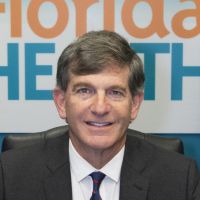
The CDC estimates that over 146 million Americans have been infected with and recovered from COVID-19. Studies show that up to one in three people who contract COVID-19 continue to suffer symptoms three to six months after getting infected. Around the world, Long COVID is causing significant disability and suffering, disproportionately affecting minority and low-income populations.
With generous funding from The Hassenfeld Foundation, the Long COVID Initiative at the Brown University School of Public Health was publicly launched in September 2021. The Initiative team rapidly studies and communicates the impact of Long COVID on people and their communities.
We bring together researchers, clinicians, employers and patients with the goal of informing data-driven decision-making within the public health community. In addition to its affiliation with the Brown University School of Public Health, the Initiative is a project of The People, Place & Health Collective, a research group focused on confronting epidemiological challenges.
The Long COVID Initiative aims to:
-
Partner with local and national organizations to leverage data to fill gaps in Long COVID research, particularly as it relates to healthcare utilization, mental health, and its impact on the workforce.
-
Rapidly contextualize, communicate, and discuss emerging evidence on the clinical, epidemiological, social, and economic aspects of Long COVID with diverse audiences including clinicians, policy makers, employers, media representatives, and the general public.
-
Apply a health equity lens to all aspects of our work to address the disproportionate impact of Long COVID on historically underrepresented communities and vulnerable populations.
-
Evaluate emerging policies and help develop policy recommendations for health system leaders, employers, and policy makers.
Meet our team

Francesca Beaudoin, MD, MS, PhD
Dr. Beaudoin is an Associate Professor of Epidemiology, and an Associate Professor of Emergency Medicine and Health Services, Policy and Practice. She is a board-certified practicing emergency physician and clinical epidemiologist with expertise in opioid use disorders and adverse post-traumatic health outcomes, particularly pain and substance use. She is Principal Investigator of multiple federal and private grant awards, has written and implemented practice management policies for health care systems, and has served as a member of the Food and Drug Administration Anesthetic and Analgesic Drug Products Advisory Committee. She has partnered with small businesses and community partners to innovate new approaches to solving key public health problems such as the opioid epidemic. She collaborates with state stakeholders such as the Rhode Island Department of Health and the Governor’s Task Force on Opioid Overdoses. She is a Senior Medical Advisor for the Institute for Clinical and Economic Review where she leads teams in the analyses and critical appraisals of evidence related to existing and emerging health technologies.

Laura Chambers, MPH, PhD
Dr. Chambers has been instrumental in establishing the Long COVID Initiative at the Brown School of Public Health and currently leads the Initiative’s survey research studies with patients and employers. From March 2020 through June 2021, she co-led the COVID-19 Data and Analytics Program at the Rhode Island Department of Health. In this role, Dr. Chambers led statewide rapid-response efforts to develop novel surveillance systems; monitor diagnoses, morbidity, mortality, and interventions; detect emerging trends and disparities; define risk factors for severe illness; and communicate findings rapidly to state leadership, the public, and other stakeholders. She has since continued her work with the COVID-19 Data and Analytics Program as a consultant.
Dr. Chambers has more than nine years of research experience in epidemiology and twelve years of applied public health experience working with and for public health departments in diverse sociopolitical contexts, including Rhode Island, Seattle, Tennessee, Mississippi, and Peru.

Scott Rivkees, MD
Dr. Rivkees is a pediatric endocrinologist and physician-scientist who served as Florida’s State Surgeon General and Secretary of Health from June 2019 to September 2021. As State Surgeon General, Dr. Rivkees also served as State Health Officer for the Florida Department of Health.
Dr. Rivkees has worked with the National Institutes of Health and the U.S. Food and Drug Administration on drug safety issues. He was responsible for the safety alert on liver toxicity caused by the antithyroid drug propylthiouracil. This led to major international treatment practice changes. For his effort, he was recognized as the 2018 recipient of the American Thyroid Association’s Paul Starr Award.
During his career, Dr. Rivkees has been named as “One of America’s Best Doctors,” “One of America’s Top Pediatricians” and “One of New York’s Best Doctors.” He is a member of the American Society for Clinical Investigation, the Connecticut Academy of Science and a fellow of the American Academy for the Advancement of Science. Dr. Rivkees is also a recipient of the Pioneer Award from CARES and the Special Service Award from the American Academy of Pediatrics.Dr. Rivkees has had more than 35 years of continuous research funding from the National Institutes of Health. He has more than 250 publications.

Stefanie Friedhoff
Friedhoff has worked as a foreign correspondent, feature writer, editor and photographer on three continents. A German-American journalist, content strategist and educator with 25+ years of experience in international media and higher education, she is an expert at creating innovative approaches to research and audience engagement on health, science, technology, education, and the information needs of democracies. Since the start of the COVID-19 pandemic in January 2020 Stefanie has been primarily focused on pandemic response research, policy and crisis communications, initially as director of content and strategy at the Harvard Global Health Institute (until September 2020) and now as a professor of the practice and senior director of content, strategy and public affairs at the Brown University School of Public Health.
Working closely with Ashish K. Jha, Dean of the Brown School of Public Health, and Danielle Allen, director of Harvard’s Edmond J. Safra Center for Ethics, and a network of researchers, political scientists, economists and other experts, her efforts have included a framework for COVID-19 Suppression, including our COVID-19 Risk Levels Map, key metrics and policy documents; policy briefs to provide guidance for K-12 schools during the pandemic; policy work to secure federal funding for testing, tracing and supported isolation; and working with media partners at NPR, ProPublica, the New York Times and other outlets, for example to put in context the nation’s failure to adequately test for the virus and bring the pandemic under control.

Leah Lovgren
Leah Lovgren is responsible for operationalizing and executing the diverse projects that fall within the Initiative’s several workstreams. Prior to joining the team at Brown, Leah served as a Program Manager of the MIT Portugal Program and Assistant Director at the Martin Trust Center for MIT Entrepreneurship. Her professional background also includes refugee case management and several years in the Boston-area advertising industry. She graduated from Boston University with a bachelor’s degree in Communications and received her master’s degree in International Relations from the University of Massachusetts in Boston.

Bentley Holt
Bentley Holt is a communications specialist with experience in state government public relations, media production, and broadcasting. He is the Communications and Outreach Specialist for the Long COVID Initiative, helping to develop and execute the Initiative’s communications strategy. Prior to Brown, he graduated from Emerson College in 2013 and began his career working in radio stations in Boston and North Carolina where he was a producer, Assistant Program Director, Music Director, and on-air host. He began working in public service in 2017 and became the Communications Director for Massachusetts State Senator Michael Rodrigues, Chair of the Senate Committee on Ways and Means, in 2018. In this capacity, Holt helped lead the media rollout for the Senate’s version of the annual state budget.

Kung Chen
Kung Chen is a Research Assistant in the Brown University School of Public Health Dean’s Incubator where he researches Long COVID, vaccine uptake and equity, and the public health information landscape. Prior to joining Brown, Kung was at the University of California, Berkeley, where he was a human rights and misinformation undergraduate investigator at the UC Berkeley Human Rights Center as well as a Sustainability Fellow at the UC Berkeley Office of Sustainability. Kung holds a BA in Political Science and a BS in Environmental Economics & Policy from the University of California, Berkeley.
For inquiries related to the Long COVID Initiative, please contact [email protected]


